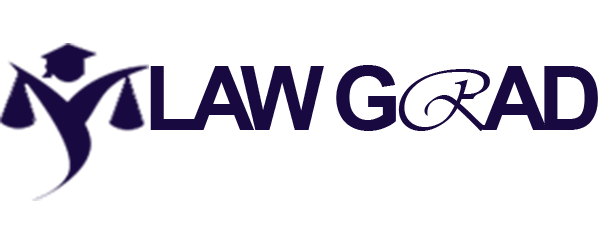So you just heard Elon Musk bought Twitter. Musk , the richest man on Earth with approximately $264.9 billion net wealth has over 92 million followers on the platform. Having joined Twitter in 2009, he is a prolific Tweeter with an aggressive Twitter habit. By the end of the year 2022 Musk is set to become Twitter’s new boss as he successfully struck a deal with the company’s board to acquire the platform for roughly $44 billion. Just before the bid went through, Musk remained as the largest shareholder of Twitter with a 9.6% intake of the company’s shares. Once the deal closes, The San Francisco based tech company will become the latest addition to Musk’s multi billion dollar investment portfolio. And he will become its CEO for sometime.
Musk earlier last month abruptly rejected a seat on Twitter’s board, and instead he offered to buy the entire company for $44 billion. Ultimately, nearly after a month long plot twists and turns, Musk was able to convince the board and shareholders to accept his hostile offer. After a foiled poison pill attempt, the board was forced to consider Musk’s bid as there was no prospect of any other higher bid coming through. Now the deal is officially.
How will Musk finance the deal?
Let's dig into the financial mechanics of the deal. How Musk cobbled together 20% of his net worth to finance the acquisition is interesting to look at. He offered to buy Twitter shares for $54.20 per share and his final bid stood with an attractive price tag worth $44 billion. He promised a $21 billion cash-equity contribution. But to tie up less of his net wealth much of which is piled up in Tesla and Space X stocks, Musk sought to secure a $25.5 billion dollars in debt by large investment firms including Morgan Stanley and high net worth billionaires to back the deal. Accordingly $13 billion is to come from bank loans whereas $12.5 billion is to be raised from margin loans (now down to $6.25bn) against his 21% stake in Tesla shares. But he had to trade a decent amount of Tesla shares worth $4.4 billion to find equity-cash, thus putting extra pressure on Tesla. As banks are reluctant to finance additional loans as Twitter is poor in generating a sufficient amount of cash flow, Musk is in talks with private equity firms such as Apollo Global Management and hedge funds. As reported by Reuters he has reached out to Twitter founder Jack Dorsey, Prince Alwaleed and Fidelity to secure third party equity in order to bring down his equity contribution from $21bn to just under $9bn. Dorsey is the second largest individual shareholder in Twitter inc after Musk. Latest reports on Guardian show that tech tycoon Larry Elisson, Binance and the Qauter State Investment Fund have also agreed to draw cheques for another $7.2billion to back up Musk’s plan to finance the deal.
How Twitter is likely to change under Musk?
With Musk becoming Twitter’s new owner, Twitter will go private and it will cease to be a public company. For Musk, the takeover is all about making free speech a priority, potentially motivated by ideological reasons. However the deal is signalling libertarian leaning tendencies of Musk who previously labelled himself as half- Democratic and half-Republican. Musk who is a vehement opponent of egregious censorship and shadow banning of accounts, views Twitter’s potential as the new town square of digital age. He stresses on the vital importance of free speech on the platform for a functioning democracy.
His version of free speech as he makes clear in one of his recent tweets is more of a speech that matches the four corners of the law, not an absolute one, which therefore will accommodate moderation of sexually abusive and illegal content.
“I am against censorship that goes far beyond the law. If people wasn’t less free speech they’ll ask govt to pass laws into that effect” Musk tweeted.
All this time while others have been busy playing checker genius Musk is playing chess. Though financial numbers do not look great for Twitter as it is hardly among the most successful tech platforms and has been underperforming with a meagre $5 bn in revenue for the year 2021, Musk seems to have long term plans to bring in Elon factor into the business to turn it around to make it lucrative. When it comes to anything he always has big plans and new insights. If you’re just wondering, his idea of sending rockets wasn’t just an accidental thought. So is Twitter buyout. He was biding his time for a long time since he was sued for financial fraud for his infamous insider tweet.
In terms of global reach, Twitter to date has only 217 million daily users. Commenting on the deal, many on the left fear Musk’s plans will see an end to platform's existing content moderation laws sparking an unleashing of mass disinformation and misinformation. Musk says he wants to make Twitter great again, better than ever. More importantly he wishes to convert its niche product status into a more mainstream product with tweaking of new features to improve its functionality by making algorithms open source, taking down spam bots to increase trust in users. Beyond that, additional plans have been revealed to authenticate all users and introducing a paid subscription model to monetize it. But his proposal to make monthly subscription service might backfire in terms of accessibility to users who have been indulged in tweeting on the platform for free for the past years.
Musk in his tweet however made clear that while Twitter will continue to be free for casual users, commercial and government users will be charged a small fee.Political blowback of the deal
Practically over night the deal sparked a plenty of reactions on the political front. Celebrity and the left leaning users reportedly lost thousands of followers whereas the Conservatives were poised to gain. While right wing watchdogs and Republican caucus are lavishing praise on the takeover, left leaning Democrats fear Musk’s purchase of Twitter could amplify misinformation and hate speech. They argue that growing power of giant social media platforms and their billionaire barons pose a serious threat to the future of democracy as they try to build an undue political influence over how users communicate their political views in the new digital era. Conservative Podcaster Joe Rogan went onto portray the deal as releasing Twitter from house arrest and described Musk as a superhero advocating free speech.
Anti-trust perspective and regulatory scrutiny
Musk’s Twitter deal is facing an in depth Federal Trade Commission (FTC) anti-trust review to determine whether he bought Twitter to influence the management of the company or he did so as a passive shareholder. The probe is likely to delay the closing in of the deal as anticipated. The Sherman Act and Clayton Act are the two main existing anti trust laws in the US. These anti trust laws are intended to prevent too much concentration of market power or formation of monopolies in individual companies. Considering the size of the takeover (before closing of bids to acquire more than 5% stake in a company’s shares, it has to be submitted for review of possible breach of antitrust laws), its specifics had to be notified and submitted for review of Justice Department and Federal Trade Commission, the two main regulatory agencies in the US. Former chair of FTC commenting on the Twitter purchase said it is very unlikely to have any anti trust issues as Twitter, a social media platform is largely different from Musk’s other companies Tesla and Space X which are mainly transportation companies. But the fact that Musk owns the satellite based internet provider Starlink will however be a concern in determining whether Twitter buyout will give a Musk a monopoly over free speech platforms.
Europe’s Digital Services Act
In Europe the ambitious legislation Digital Services Act which is focused on creating an online safety net for social media users to battle misinformation and hate speech is in the pipeline and awaiting formal approval from the EU legislators. It will confront Elon’s free speech absolutist hands off approach in European Union. The Act will require tech platforms such as Google, Instagram and Facebook and Twitter etc to comply with content moderation laws to flag what they seem to be illegal abusive content. Companies failed to comply with the new rules will face up to 6% of their annual revenues.
Unlike in the EU where a league of rules and regulations are put in place, in the US tech platforms remain largely unregulated with less or no government oversight.









No comments:
Post a Comment